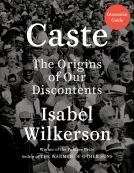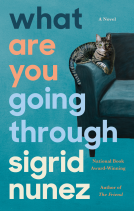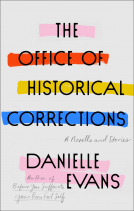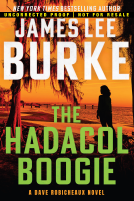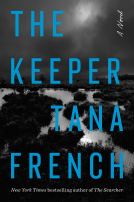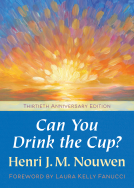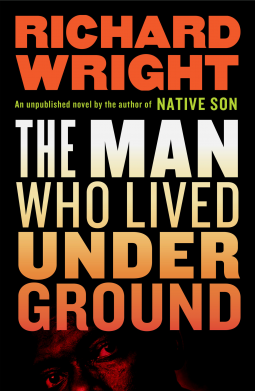
The Man Who Lived Underground: A Novel
by Richard Wright
This title was previously available on NetGalley and is now archived.
Send NetGalley books directly to your Kindle or Kindle app
1
To read on a Kindle or Kindle app, please add kindle@netgalley.com as an approved email address to receive files in your Amazon account. Click here for step-by-step instructions.
2
Also find your Kindle email address within your Amazon account, and enter it here.
Pub Date Apr 20 2021 | Archive Date Jun 30 2021
Talking about this book? Use #TheManWhoLivedUndergroundLibraryofAmericaRichardWright #NetGalley. More hashtag tips!
Description
NEW YORK TIMES BEST SELLER
ONE OF TIME'S 100 MUST-READ BOOKS OF 2021
ONE OF OPRAH'S 15 FAVORITE BOOKS OF 2021
ONE OF THE CHICAGO TRIBUNE'S 10 BEST BOOKS OF 2021
A BOSTON GLOBE BEST BOOK OF 2021
STEPH CURRY'S "UNDERRRATED" BOOK CLUB PICK
A major literary event: an explosive, previously unpublished novel about race and police violence by the legendary author of Native Son and Black Boy
Fred Daniels, a Black man, is picked up by the police after a brutal double murder and tortured until he confesses to a crime he did not commit. After signing a confession, he escapes from custody and flees into the city’s sewer system.
This is the devastating premise of this scorching novel, a masterpiece that Richard Wright was unable to publish in his lifetime. Written between his landmark books Native Son (1940) and Black Boy (1945), at the height of his creative powers, it would eventually see publication only in drastically condensed and truncated form in the posthumous collection Eight Men (1961).
Now, for the first time, by special arrangement with the author's estate, the full text of this incendiary novel about race and violence in America, the work that meant more to Wright than any other (“I have never written anything in my life that stemmed more from sheer inspiration”), is published in the form that he intended, complete with his companion essay, “Memories of My Grandmother.” Malcolm Wright, the author’s grandson, contributes an afterword.
Available Editions
| EDITION | Other Format |
| ISBN | 9781598536768 |
| PRICE | $22.95 (USD) |
| PAGES | 250 |
Average rating from 43 members
Featured Reviews
 Sandra S, Librarian
Sandra S, Librarian
Richard Wright is my favorite author so when I saw that this book was forthcoming I knew I had to request a prepub edition. Netgalley provided me a copy in exchange for a review.
I read Wright's "Native Son" and was instantly enamored by his writing. I've read all of his fiction and consider his lesser-known works such as "The Long Dream," "Lawd Today!," and "The Outsider" as near perfect novels.
The Man Who Lived Underground was originally published as a short story and included in the "Eight Men" anthology. This is the full, unedited story published for the first time.
It is very classically Wright in content, but the writing style is different. I feel that it still feels unfinished, even though the afterward essay (also penned by Wright) deems it as complete.
I still believe everyone should read this story, but it's not the same Wright that I know.
 Richard B, Reviewer
Richard B, Reviewer
<i>The Man Who Lived Underground</i> is a fictional novel of a man who escapes one world to live in another. Fred Daniels is a decent family man who suffers through a false accusation, escapes, and then returns to a confusing world. <i>The Man Who Lived Underground</i> was written by the renowned author Richard Wright.
Fred Daniels is coming home from work one night when he's pulled over by three policeman who accuse him of having murdered two people. They beat him all night long and in the morning they to take them to the house where a murder has taken place. They take him home to see his wife. During the visit his wife goes into labour so the police rush Fred and his wife to the hospital. While in the hospital Fred manages to escape and he hides in a sewer. While in the sewer and he is able to observe businesses around town by digging a hole into their basements and observing the people from his hiding place. When he finally leaves the sewer and goes back to the police station he experiences a whole series of unexpected events.
The story is extremely well written. Wright’s descriptions are so true to life that you feel as though you are experiencing the horrific the beatings. His writing evokes strong emotions throughout.
Although this book describes an era when lynching and beatings are widespread, the book is so much more than that. It is not at all what you expect. The story is an allegory which is totally beyond description in this review. Fred Daniel's life underground becomes a major part of the story. His return to life above ground is truly a surprise.
This book is meant for people who like truly different and surprising stories that make you think. I give it a 4 on 5. I want to thank NetGalley and the publisher for providing me with a digital copy of this novel. I have provided this honest review voluntarily.
Well worth reading and sharing. Richard Wright's work remains indelible and The Man Who Lived Underground is literary work to dive into and appreciate. Highly recommended.
“The Man Who Lived Underground” is a previously-unpublished novel by famed author Richard Wright (author of Native Son). This short novel was originally rejected for publication seventy years ago and now presented posthumously.
It starts out as a typical story of racial injustice where an African-American man is picked up by the police and blamed for a double murder. Beaten into submission, he signs a confession. But, rather than focus on proving his innocence, Wright takes his novel in an entirely different direction which is what makes it so fascinating.
For this man escapes and hides in the sewers, tunneling into basements. In a split second, he leaves Civilization and exists apart from it. Obviously an allegory for so many things this living underground and living an invisible life. No one knows he’s down there and no one suspects he’s hiding there.
Told from only his point of view, it is a universal tale of how easily society’s bonds are broken and how quickly we can become completely disconnected. And it also becomes an existential story about the meaning of life and how easily it is to separate and leave an unfair world. Looking at things from the outside - in his hidden cave beneath the city, the lead character thinks about what matters and what has meaning. It is thus not the same novel you may have thought you were going to read, yet a case study of what it means to be alive. Written starkly, it is impressive what a skilled writer Wright is.
Richard Wright’s books have a way of sticking with you long after you finish reading them. This was true for me when I read Native Son in college and is also true after I recently read his unpublished novel The Man Who Lived Underground. The novel tells the story of a Black man in his late 20s named Fred Daniels. One day he gets picked up by the police and is accused of murder and armed robbery. Fred tells the police he did not do it but they do not believe him. The officers beat him continuously until he confesses to committing the crime. At his first opportunity, Fred escapes from their custody and hides out in the city’s underground sewer system. While he lives underground, Fred becomes a totally different person. He does things he would not normally do, he becomes the thing that White society fears the most, a Black criminal. But this side of Fred does not last for long, he gets sick of the underground. He sees things he doesn’t want to see, the corruption of society and the system. He feels convicted and wants to return aboveground to report what he saw and turn himself in, but doing so will cost him everything.
The Man Who Lived Underground is a powerful book one that will resonate with modern readers even though it was written in the early 1940s. I love Wright’s writing in this novel, he was so vivid in his descriptions especially his details of the underground world. Wright use of alliteration and anaphoras was exceptional.
This novel could be viewed as a philosophical book since Fred learns some hidden truths while living underground. This notion is confirmed when the reader reads “Memories of My Grandmother” by Wright which is the companion essay to the novel. Wright’s daughter stated that this novel could only be published if the essay was published alongside it. In the essay, the author writes about all of the themes that inspired the novel including: his grandmother’s religious identity, invisibility, the Christ legend, the Negro problem, surrealism, jazz music, and the common theme of being falsely accused of something. It’s a long essay but I think it will be a good supplement to read alongside the novel in English classes. In my opinion most readers can go without reading the essay and let the novel stand for itself but I would only recommend it if the reader wants to get in the author’s head on the origins of novel.
This story sucked me in and it did not let me go! Simply put, it’s a masterpiece.
Thanks to @netgalley and @libraryofamerica for providing a copy of this book in exchange for my honest opinion.
 jean luc e, Librarian
jean luc e, Librarian
Richard Wright's The man who lived underground is a harrowing book about racism, a nightmarish journey into the violent depths of discrimination. It's the sad & painful story of Fred Daniel, a young African American man unjustly accused of a murder he didn't commit. After being forced to sign a confession, he manages to flee and hide underground into the sewer system of the city. At the core of this magnificent novel there is human resilience, the strength of the hunted man, the survival instinct of an innocent man. Through his dismal adventures & brief encounters in the dark urban underworld, we witness first-hand how Fred grows, how he matures and how it comes to accept his fate during his hellish flight until his ultimate death.
It was very difficult for me to walk away from this incredible masterpiece of African American fiction. It shook me to the core and will probably haunt me for quite a long time.
Many thanks to Netgalley and Library of America for the opportunity to read this wonderful novel prior to its release date
Readers who liked this book also liked:
Hazel V Carby
Essays & Collections, Multicultural Interest, Politics & Current Affairs
L.M Montgomery
Children's Fiction, Comics, Graphic Novels, Manga, Teens & YA
